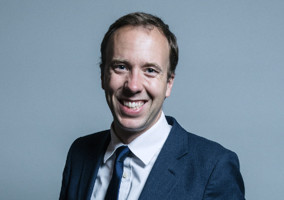“Who is Sylvia? What is she?”
When I was a child this Shakespearean verse, set to music by Schubert, got stuck in my head. And I never really managed to get it back out again. Recently we seem to be asking ourselves the same question about civil society.
In a recent blog for DCMS I wrote: ‘Civil society is a golden thread that runs through our individual and collective lives. It binds us together and provides a platform for human contact. It is the Big Lunch, the RSPB, and the Children’s Society, the Campaign to End Loneliness, Uprising, and the Terence Higgins Trust.’
Doubtless we will all have our own versions, and this must also be a question exercising government as it attempts to shoehorn a sometimes unruly sector into a policy framework for itself.
It is a question that opens up the opportunity and challenge of re-calibrating the interplay between the state, the market, and civil society; that can tease out their complementarity, play to their respective strengths, recognise the blurring of the boundaries between them, and help us build an inclusive future in a disruptive digital world.
'Exemplifies precious human qualities of generosity, kindness and love'
For our own part at the Big Lottery Fund we see that golden thread of civil society enabling people and communities to thrive and enriching their lives. Civil society may not make people rich financially, and it doesn’t have the glamour of the arts or the firepower of global sporting events, but at its core it exemplifies those precious human qualities of generosity, kindness and love.
So how best to nurture and challenge charities and community organisations to be the best they possibly can be and create the right conditions for them to thrive in the new world order?
Let’s begin with a more joined up approach by all of us to delivering services and running facilities. The Big Lottery Fund’s five major strategic programmes in England, each aimed at tackling a particular life stage from A Better Start through to Ageing Better, operate for up to ten years through 58 across England. This has given us rich learning about how to develop meaningful and productive partnerships focussed on user needs.
Changing systems to put the citizen at the heart of a service doesn’t happen with a click of the fingers. It requires new skills, approaches, and different models of governance: be they systems thinking, generous leadership, or collective impact. Commissioners and practitioners like Mayday Trust or the local and health authority in Plymouth are forging ahead, and Nesta’s Good Help Awards show us the art of the possible.
Start with the human
Secondly, we have to start with the human, giving people agency be it in designing services or making decisions about what their place looks and feels like. Government led the way with the championing of user centred design by the Government Digital Services, but it takes a lot of time and effort to move our collective oil tanker.
Fundamentally this is about valuing lived experience. Baljeet Sandhu’s report on The Value of Lived Experience in Social Change challenges the charity sector to embrace experts by experience. We all need to understand the key role the citizen as expert can play. This is not defined by affluence or geography, and both the richness of experience and expertise this offers, and the power it holds, can sometimes be overlooked as we hurtle towards ever greater professionalisation.
And finally - money! OCS and Government both fund directly and influence the behaviour of other funders. Venture philanthropy, social investment, crowd funding, community businesses and plain old philanthropy and grant making can all contribute to a viable and vibrant sector. But we have to cast off that old adage ‘money talks’ and adopt the mantle of ‘money is listening’.
We have to recognise the cultural and emotional significance of place and identity in people’s lives. Of the 12,000 grants we make each year, about 11,000 go to grassroots community groups, often volunteer led. These National Lottery grants are small – less than £10,000. In the words of Amplify working in Northern Ireland, we need to ‘tread carefully and listen deeply’ so that our money supports an operationally sustainable sector that empowers and enables communities to work in equal partnership with public and private sectors for the common good.
It was great to hear the secretary of state speak of 'grants 2.0'. The Big Lottery Fund alone makes grants worth over half a billion pounds each year. Add in independent trusts and foundations, philanthropists, and grant funding from the public sector and this remains a powerful tool with which to support a civil society that, to borrow from David Robinson, is "ready for anything".
Dawn Austwick is chief executive of the Big Lottery Fund.
Related articles











